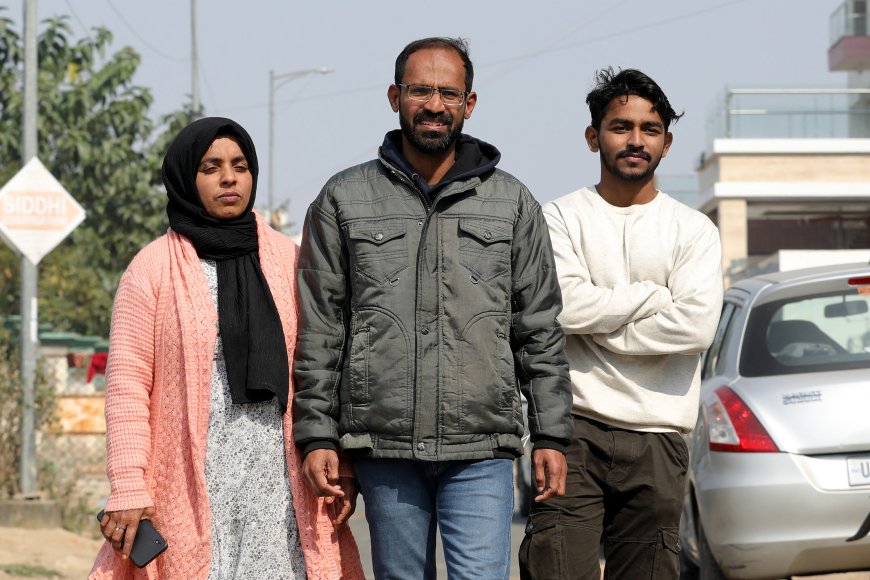After a decade under Modi, India's free press is not so free
Nowadays, journalist Siddique Kappan steers clear of controversial stories.

Last time he chased a major story, a shocking rape-and-murder case, it landed the father of three in jail for more than two years, and severely damaged his career and livelihood. The 44-year-old blames his incarceration on a worsening climate for journalists in India, where arrests and harassment are growing more common.
And he is far from the only journalist feeling squeezed out of their industry during Prime Minister Narendra Modi’s decade-long rule.
The government of the popular but divisive leader - who has not taken a single solo press conference while in office - stands accused by opponents of suppressing media pluralism and ratcheting up the use of anti-terror legislation against reporters.
And as Modi looks to win another five years in power in an ongoing nationwide election, critics fear further erosion of the protections afforded to India’s free press.
“I think many times before I write stories,” Kappan told CNN. “Anytime, anywhere, anyone can file a case against me.”
In October 2020, Kappan was working as a freelancer for a Malayalam-language news website. He was on his way to Hathras district, in northern Uttar Pradesh state, to report on the alleged gang rape and killing of a Dalit teenager by upper-caste men. India’s caste system was officially abolished decades ago, but the social hierarchy imposed on people by birth still exists in many aspects of life. Dalits are on the lowest rung.
Before he arrived at the scene, he was taken into police custody, charged under anti-terror and money laundering laws. The police alleged he was part of a conspiracy to disturb the peace in the area, but he said his arrest was an attempt to tamp down on coverage of the story.
H e would spend 28 months in jail. Kappan was granted bail by the Supreme Court in February 2023, but while he currently walks free, his case is still making its way through the courts.
Opposing his bail, the Uttar Pradesh government, led by Modi’s Bharatiya Janata Party (BJP), filed an affidavit in the Supreme Court. In the document, seen by CNN, it argued against bail on the grounds Kappan had been “writing articles targeted at spreading communal tensions” and was a part of a larger conspiracy to “foment religious discord and spread terror in the country.”
CNN has contacted the BJP at both the local and national level for comment on the case.
Since his bail, Kappan has struggled to find a permanent job to provide for his family. “The main reason is the fear of newspaper bosses, the media, which depends on government advertisement, who do not want to upset the government,” he told CNN.
He says he is wary of more cases being brought against him, and finds himself working on “safe zone” stories unlikely to ruffle feathers.
The treatment of journalists like Kappan has struck fear into many other reporters.
“There was nothing Kappan could have done differently to avoid arrest, except not going to report,” said Kaushik Raj, who works with several publications and writes on hate crimes. “This was chilling for me.”
India is one of the largest media markets in the world, according to the Paris-based group Reporters Without Borders (RSF), with more than 20,000 daily newspapers across the country and about 450 privately owned channels dedicated to news, which broadcast in dozens of languages.
Yet despite its size and diversity, critics say the media industry is growing increasingly subservient to Modi’s government.
What's Your Reaction?

























